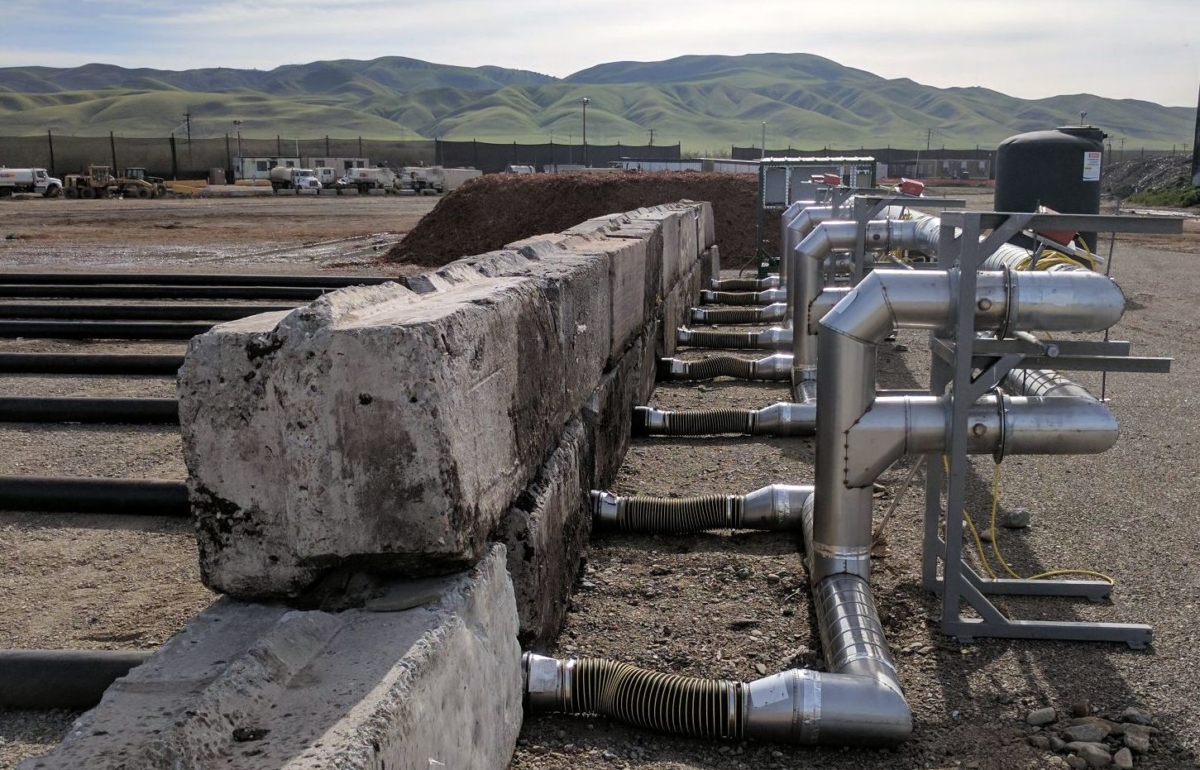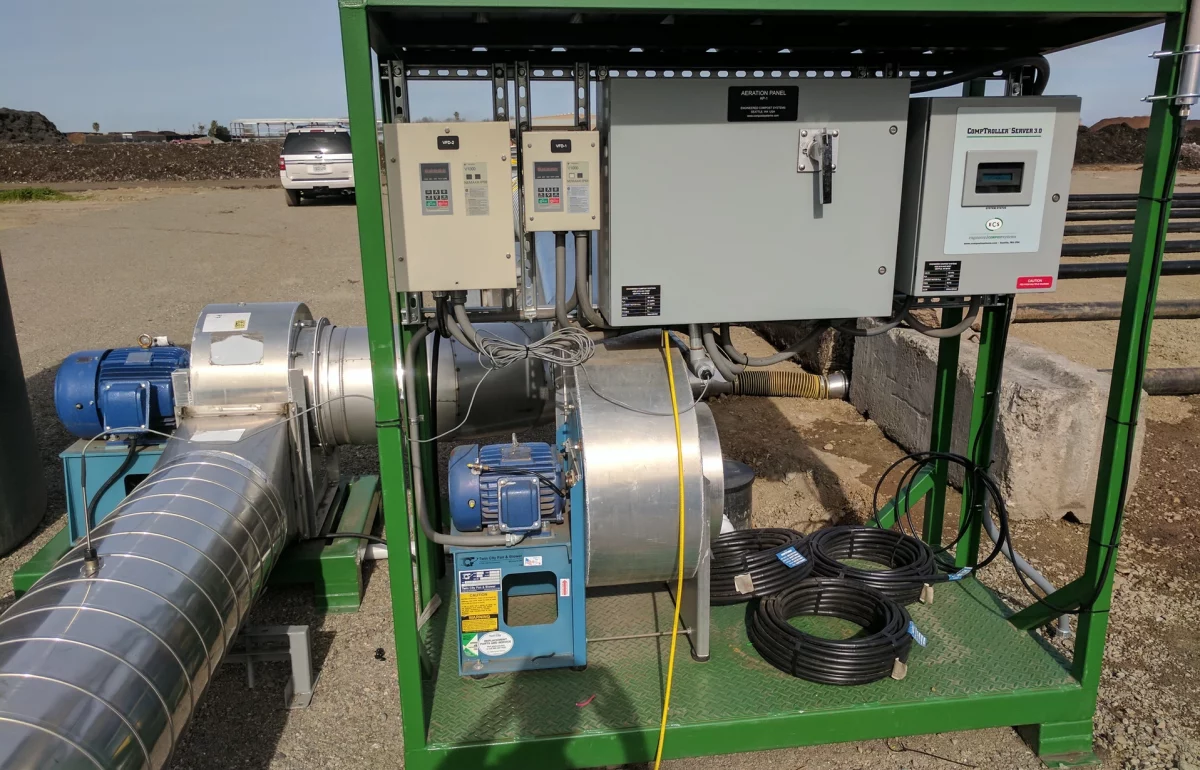That might be overstating it a little bit, but here is the point. ECS doesn’t have a single answer for what to propose to the composting community. We believe that a pilot project should be flexible enough to explore and identify what composting method will work best for a full-scale facility. To that end, our pilot systems provide the flexibility to allow operators to optimize their operation before it is literally cast in concrete.
Full featured ECS pilot systems allow operators to run simultaneous batches with different control settings including aeration types (positive, negative, and reversing), retention times, and pile geometries. At full scale, these variables have a profound impact on CAPEX, OPEX and odor control. By being able to run side by side batches you can quickly determine if the added cost of a negatively aerated system is worth the improved odor control over a positively aerated system, or if the enhanced stabilization rates of a reversing aeration system results in adequate reduction in curing area to justify the investment.

The ECS Pilot System will arrive at your site with all the mechanical parts and skid mounted controls that are pre-tested at our shop. They typically have from 2 to 6 zones that hold around 200 yd3 so that the pile dynamics are comparable to full-scale. The zones can be configured as bunkers, mass-bed or as individual piles. Each zone is individually and automatically monitored and controlled. These systems include a controlled and monitored biofilter to scrub the air when they are operated in negative aeration.

ECS also offers a suite of Technical Services to help you design your pilot testing program, collect and analysis its data, and build a pro forma economic model to evaluate your options. We can even take odor samples and model odor dispersal.
If you’d like to measure and know before you go, give us a call.